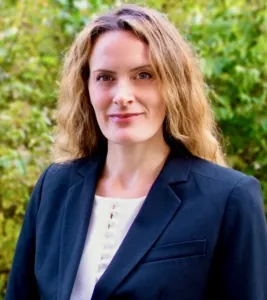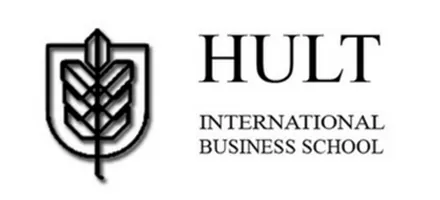
As a senior at University of Wisconsin-Madison, Jake Fellman had a vague plan to launch a 3D animation studio, creating videos for clients at $50 per second. He stalked his professors during their office hours, collecting any tidbit of advice he could tease out of them. Some were more receptive than others.
In his eighth and final semester, Fellman stepped into Marketing 415. Professor Moses Altsech handed out a syllabus unlike any other Fellman had previously encountered. Strict would be an understatement: Each student was required to sign an attendance sheet at the start of every class with latecomers receiving a two-point deduction. No cell phones or laptops were allowed during lectures. A single beep or vibration meant a full-letter deduction on the final grade.
But, Fellman soon realized, Altsech’s style wasn’t arbitrary. There was a method to the madness, as Altsech explained: “The attendance policy taught students to treat class as a commitment they had to stick to, the punctuality policy eliminated disruptions and instilled professionalism, and the no-device policy was based on research that handwritten notes result in higher retention and engaged students, focusing their undivided attention on the discussion,” says Fellman who earned his bachelor’s in business administration from the Wisconsin School of Business in 2020.
Fellman started stalking Altsech’s office hours like he had so many others. Twice a week, professor and student talked across Altsech’s desk, dissecting Fellman’s business plan, deconstructing his client acquisition strategies, and revising the copy on his website line-by-line. He still remembers the colorful metaphors Altsech used to make key business concepts memorable. Altsech told him to think of pricing like a fine cut of beef.
“If you went to a fancy restaurant and they charged filet mignon by the bite, you would try to take as few bites as possible,” Fellman recalls Moses telling him. Fellman switched to a flat rate fee and doubled his revenue.

Jake Fellman, at left, poses with his former marketing professor, Moses Altsech of University of Wisconsin-Madison, Wisconsin School of Business. Fellman’s self-named 3D animation brand has amassed more than 37 million followers on YouTube and TikTok. Four years after graduation, Fellman still counts Altsech as one of his most impactful mentors. Courtesy photo
Today, Fellman’s self-named animation brand has more than 37 million social followers, including 24 million subscribers on YouTube and 13 million followers TikTok.
In fact, several of Altsech’s students, both past and present, wrote to P&Q about that strict-on-steroids syllabus in nominating him as one of our 50 Best Undergraduate Professors of 2024. All considered it an attribute to their success in his class, not a flaw.
“Moses has remained a resource and mentor to me beyond graduation. It’s rare to find a professor willing to leverage personal connections in favor of their students, even more rare when the student has long since left the university system. However, this is a pattern of care that is not new or novel to Moses, and I am grateful to have crossed his path during my time in Madison,” Fellman writes.
“His unmatched dedication to the success of his students (both inside and out of the classroom) is a rare and valuable asset, which sets him apart as a uniquely worthy candidate.”
PRESENTING P&Q’s BEST UNDERGRADUATE PROFESSORS
Today, we proudly present our seventh edition of the 50 best professors in undergrad business education. We received more than 1,000 nominations (for nearly 160 individual professors) from students, alumni, colleagues, and school deans who took the time to describe the impact these outstanding professors have had on students, their departments, and the business community at large.
Nominations came from more than 60 of the best undergraduate business programs, including a dozen international schools.
The editorial team at Poets&Quants individually evaluated every nomination. Each professor was assigned a 1-to-10 score based on their research and teaching accolades. Research was given a 30% weight and teaching a 70% weight, with the average making up the final score.
For research, we considered the volume of a professor’s Google Scholar citations, how much major media attention they received, research and writing awards, and their industry impact. For teaching, we considered all nominations, teaching awards, and impacts on their schools and departments.
PROFESSORS FROM 43 SCHOOLS MADE THE LIST

Stephanie E. Raible
2024’s list features 19 women. They include Stephanie E. Raible, 41, Associate Professor of Entrepreneurship and the Faculty Director of Social Innovation and Entrepreneurship at University of Delaware’s Lerner College of Business and Economics. This coming year, she will be a Fulbright Scholar and Visiting Professor at Management Center Innsbruck in Austria.
If she had her way, business schools would spend more time studying and discussing societal and environmental dilemmas. “Business plays such a key part in change, future business leaders need to prepare for a world that is more complex and interconnected. To accomplish big things, students need to learn to speak to and work with people who don’t think like them,” she says.
“Business schools are well positioned to reinforce and inform because we teach students how to think, not what to think.”
Our 50 stellar undergrad professors hail from 43 different schools. University of Southern California’s Marshall School of Business has the most professors on the list at three, each a standout in their fields of accounting, statistics and operations management, and marketing.
Five business programs had two professors each including Indiana University’s Kelley School of Business, Texas Christian University Neeley School of Business, The Wharton School at the University of Pennsylvania, University of Wisconsin-Madison’s Wisconsin School of Business, and Washington University in St. Louis’ Olin Business School.
At Wharton, Burcu Esmer is the Academic Co-Director of the Harris Family Alternative Investments Program and Senior Lecturer of Finance. Outside Wharton, she works to increase diversity in asset management and alternative investments. She is the Academic Director of Girls Who Invest Summer Intensive Program and Wharton-AltFinance Institute. She has served on the advisory board of Girls Who Invest since 2018.
“Professor Esmer is deeply committed to her students’ growth, offering support and encouragement that extends beyond the classroom. She goes out of her way to ensure that each student has a thorough understanding of the material, taking extra time to answer questions and provide additional resources when needed,” says Makyla Johnson, a Girls Who Invest student.
“Thanks to her dedication, I left the program with a newfound confidence in finance, which I never thought possible.”
NEXT PAGE: Wide range of expertise, disciplines and backgrounds
© Copyright 2025 Poets & Quants. All rights reserved. This article may not be republished, rewritten or otherwise distributed without written permission. To reprint or license this article or any content from Poets & Quants, please submit your request HERE.










